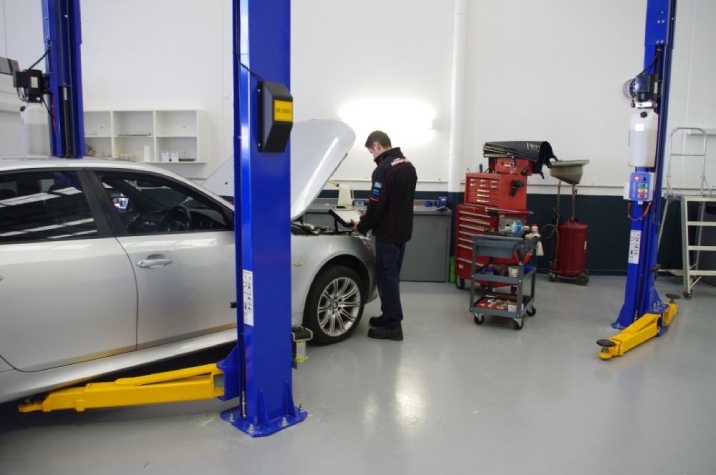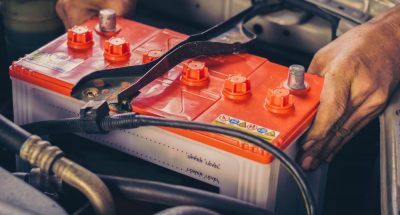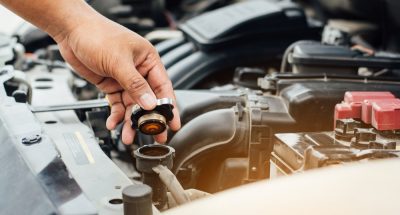- Oneflare /
- Cost Guides /
- Gasket Replacement Repair

How Much Does a Head Gasket Repair Cost?
$800 - $3,200
What's on this page
- Cost of a Head Gasket Repair
- What is a Head Gasket?
- Signs of a Head Gasket Failure
- Importance of a Functioning Gasket
- Factors Impacting the Cost
- Price Estimates for Popular Vehicles
- Different Types of Gaskets Prices
- Hiring a Mechanic
- How to Save Money
Read Related Gasket Replacement and Repair Articles
How Much Does a Head Gasket Repair Cost?
The head gasket is a car part that many are not aware of until it blows, and they get handed a big repair bill. The average head gasket replacement cost is between $800 to $3,200, but the part is not what drives up the price. Labour costs are a significant factor in head gasket repair cost.
The head gasket is a rubber seal that keeps the fluids in their proper place. The gasket replacement price is typically low. However, getting to it can require tearing the entire engine apart. Since labour is the most significant cost factor in the head gasket repair, differences in hourly rates in different parts of the country have a substantial effect on the cost of the repair.
Hourly rates for labour can be anywhere between $25 to $120 per hour. Here are a few examples of the differences in hourly rates in different parts of the country. However, keep in mind that sometimes mechanics charge more than the hourly rate.
| City | Average Cost |
| Sydney | $60 – $100 |
| Melbourne | $40 – $60 |
| Brisbane | $40 – $80 |
| Canberra | $30 – $70 |
| Perth | $60 – $90 |
| Adelaide | $60 – $100 |
What is a Head Gasket?
Your vehicle has many different gaskets, of which the head gasket is one of the most important. Gaskets help form tight seals between metal parts to keep liquids in their proper place. The head gasket is located between the cylinder head and the engine block. It creates an airtight seal in the combustion chamber and keeps oil and coolant out.
Signs of a Head Gasket Failure
Many things can cause your head gasket to wear out. When it does, your car will give you some subtle signs that you need to get it repaired. Here are a few of the signs that you need to have your vehicle checked for a blown head gasket.
Overheating engine. If your head gasket is blown, your engine might overheat because hot exhaust gases escape into the cooling system. An overheating motor might cause significant damage to the engine, even cause it to warp.
Coolant leaks. With a blown head gasket, coolant can leak into the oil and cause damage to the engine.
White smoke from the exhaust. If you see a bit of white coming from the exhaust when you first start the engine that goes away in a few minutes, it is more than likely water vapour. However, if it is a significant amount of smoke and it does not stop after the engine warms up, then it is likely a blown head gasket.
Oil is a milky colour. If you take the cap off and there is a milky white colour underneath the lid, then coolant has mixed with the oil. When this enters the combustion chamber, it can cause significant damage.
Lowered compression. Even a small leak in the head gasket can cause your engine to lose power. If your engine does not have the acceleration that it used to or has problems getting up hills, it might be your head gasket causing the problem.

A mechanic inspects the engine of a silver sedan. | Source: Mornington Automotive Specialists
Why is a Functioning Gasket so Important?
The head gasket is one of the most essential parts of your engine. Here are a few of the reasons why this component is so important.
Stops debris from entering the engine. Waste in the combustion chamber can cause uncontrolled combustion, and this can damage the piston and cylinder.
Helps maintain internal pressure. If you lose internal pressure, there might not be enough force to move the piston all the way to its fully extended position, or not at all.
Keeps fluids and oils in the engine. A leaky head gasket can cause the oil to leak from your engine, which can cause your engine to overheat and cause wear to parts.
Guarantees tightness of the engine. Today’s engines are finely tuned pieces of machinery. If they are not sealed properly, they can lose power and will not have the performance that you expect from them.
Factors Impacting the Cost of a Gasket Repair or Replacement
Many different factors can affect the cost of repairing a head gasket.
Age of the vehicle. The head gasket is a part that will wear out over time. Exposure to heat and cold temperatures will cause it to break down. The gasket repair cost depends on the type of engine and the damaged caused. In general, a broken gasket cost is more for older cars because there is a higher chance that additional damage has been done.
Make and model of the vehicle. The make and model of the car is one of the most significant factors in how much the repair will cost. The cost depends on the type of head gasket material and how much work is involved in taking the engine apart. However, you can expect to pay more in cracked head gasket repair cost in a high-performance sports model than in a cheaper car.
Type of engine. Whether your engine is a V6 or V8 will also affect blown head gasket repair cost. A V6 or V8 has two heads and will be more expensive to repair. Also, certain types of engine configurations will be more costly to repair, such as the Subaru Boxer-type engine.
The severity of the damage. When your head gasket blows, it can cause damage to the piston, cylinder, exhaust, cooling system, and several other system components. The extent of the other damage will play a role in the cost of the repair.
Type of gasket. Head gaskets can be made from composite, layered steel, or copper. They must be made to withstand different forces. The kind of head gasket will affect the cost of repair, but not as much as the cost of labour.
Gasket Repair/Replacement Price Estimates for Popular Vehicles
| Manufacturer | Average Cost |
| Nissan | $1,000 – $1,300 |
| Subaru | $1,200 – $1,600 |
| BMW | $2,700 – $3,200 |
| Mercedes | $1,600 – $2,000 |
| Toyota | $1,200 – $1,600 |
Price Estimates for Different Types of Gaskets
The head gasket is not the only important gasket in your vehicle. Here are a few examples of what it costs to replace other gaskets throughout the car.
| Type of Gasket | Average Cost |
| Rocker/valve cover | A rocker cover gasket replacement cost is between $480 – $620. A valve cover gasket replacement cost is in the same range. |
| Oil pan/sump | An oil pan gasket replacement cost ranges between $700 – $875. |
| Exhaust | An exhaust gasket replacement cost is between $450 – $600. |
| Manifold | A manifold gasket replacement cost ranges from $180 – $560. |
| Water pump | A water pump gasket replacement cost is about $650 – $850 for most vehicles. |
| Cylinder head | A cylinder head gasket price ranges from $1,800 – $2,400. |
How to Hire a Mechanic
When hiring a mechanic, the cheapest is not always the best. You want to make sure that the job is done right. An improperly installed head gasket can cause significant damage as soon as you drive it after the repair. Finding a mechanic with a good reputation is the most crucial consideration. Here are a few tips for finding the right mechanic for the job.
How to Create an Accurate Estimate
Know the make, model, and age of your vehicle.
- Tell the mechanic how long the symptoms have been going on.
- Have your records of oil changes and other services that have been performed recently.
Licencing and Qualifications
The National Institute for Automotive Service Excellence (ASE) is the gold standard in certifications for automotive mechanics. You need to be aware that in some states, a trainee or apprentice can work on your car under the supervision of a certified mechanic. Here are a few questions that you should ask before committing to getting your vehicle fixed.
- What certifications or qualifications do you have to do the job?
- What is your experience and expertise in my make and model of vehicle?
- How long will the repair take, and when can I expect to have my vehicle back?
How to Save Money Hiring a Mechanic
- Have the vehicle inspected to make sure that the head gasket is the problem.
- Don’t wait. If you think that you have an issue with your head gasket, if you wait, you can cause more damage and have a higher repair bill.
- Keep up with maintenance and repair on your vehicle. This can keep the head gasket from wearing out, and you are more likely to catch the problem before it causes significant damage.
* The cost data is based on Oneflare and third-party sources


